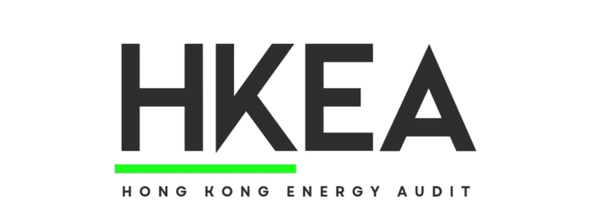
Energy audit-related revisions will be fully implemented on September 20, 2026
Share
Key updates to the Buildings Energy Efficiency (Amendment) Ordinance 2025
As a densely populated international city, Hong Kong's buildings account for approximately 90% of its total electricity consumption and over 50% of its carbon emissions, a situation that is worsening. To align with the city's 2050 carbon neutrality goal and address increasingly stringent global energy conservation and carbon reduction requirements, the Hong Kong Government gazetted the Buildings Energy Efficiency (Amendment) Ordinance 2025 (the "Amendment Ordinance") on June 20, 2025. This Ordinance streamlines energy audits and other related details, and will be fully implemented in two phases starting September 20, 2026. This Ordinance represents a major revision of the existing Buildings Energy Efficiency Ordinance (Cap. 610), further expanding its regulatory scope and strengthening enforcement, with the goal of improving the overall energy efficiency of buildings in Hong Kong.

Five major objectives of energy audit-related revisions
Background and legislative process of the revised regulations
The current Buildings Energy Efficiency Ordinance, which came into effect on September 21, 2012, mainly regulates two aspects:
- The first is to require that building services installations in new buildings or during major renovation works must comply with prescribed energy efficiency standards;
- The second is to require commercial buildings to undergo energy audits every 10 years or less to identify and implement energy-saving opportunities.
After years of implementation of the current regulations, more than 2,300 new buildings and about 15,000 renovation projects of existing buildings in Hong Kong have met the standards, and 2,700 major buildings have completed their first energy audits. However, in the face of more stringent energy demand and carbon emission targets in the future, the existing regulatory framework needs to be upgraded.
- Starting from the end of 2023, the Environment and Ecology Bureau will consult the industry on proposed revisions to the regulations, collecting opinions and accumulating industry consensus.
- The amendment bill was moved to the Legislative Council for second reading on March 26, 2025, and passed the third reading on June 11.
The revisions mainly focus on five major directions:
- (1) Including data centers in the scope of energy efficiency standards
- (2) Expand the scope of energy audits for more building categories
- (3) Shorten the energy audit cycle to 5 years
- (4) Public disclosure of some technical information of the energy audit report
- (5) Expand the scope of qualifications for registered energy efficiency assessors to improve professional certification

Major updates after the revision of the Buildings Energy Efficiency Ordinance
1. Including data centers in energy efficiency standards
Hong Kong's data centers will be fully regulated under building energy efficiency standards and energy audits. Due to their high energy consumption, data centers have long been underdeveloped. However, with the rapid development of information technology, data center energy consumption has become a major concern. The revised regulations explicitly bring data center buildings and facilities under full regulation. Whether new construction or major renovations, they must comply with relevant energy standards in accordance with the Building Energy Code. This move will help promote energy conservation in data centers and promote the industry's low-carbon transformation.
2. Expand the scope of regular energy audits for more types of buildings
The types of buildings that were originally scheduled to undergo energy audits every 10 years have been expanded from two to eleven or even more after the revision of the regulations, including multiple public and commercial buildings, with a wider coverage. The purpose is to uncover more potential energy-saving space and promote overall energy efficiency. Owners are required to submit energy audit reports every five years to increase the frequency and transparency of supervision and prevent energy waste.
| Before revision |
Scope of Energy Audit (Building types include) |
After revision |
Scope of Energy Audit (Building types include) |
| 2 types of buildings | Commercial buildings |
9 new buildings | Buildings occupied primarily for educational purposes |
| The commercial portion of a mixed-use building | Buildings occupied primarily for community purposes (such as community halls, social service centres), and composite buildings occupied for two or more of the above purposes | ||
| Buildings occupied primarily for municipal purposes (such as markets, cooked food centres, libraries, civic centres, cultural centres and indoor sports grounds), and composite buildings occupied for two or more of the above purposes | |||
| Buildings occupied primarily for medical and healthcare services (such as hospitals, clinics, rehabilitation centres) | |||
| Buildings that house people during the performance of government functions |
|||
| Airport passenger terminal |
|||
| Railway Station |
|||
| Buildings occupied primarily for data centre purposes |
|||
| Part of an industrial building occupied primarily for data centre purposes |
The types of buildings subject to energy audits have been expanded from two to eleven, with the addition of data centres in Hong Kong.
3. Shorten the energy audit cycle to 5 years
In response to rapidly changing energy-saving technologies and standards, accelerating and updating audits is an inevitable trend. Therefore, after the revision of the regulations, the energy audit cycle will be reduced from 10 years to 5 years. The shorter audit cycle allows energy-saving measures to quickly keep up with the latest technologies and specifications, improve the overall efficiency of buildings, and reduce long-term electricity consumption and operating costs.
4. Disclose more technical information in energy audit reports
The revised regulations require property owners to disclose more specified technical information in energy audit reports, including key energy usage indicators and equipment performance data, to enhance the transparency of energy information among property owners, tenants and the general public. This will encourage property owners to invest more actively in energy-saving improvements and facilitate supervision by the government and the public.
5. Expanding the qualifications and certification content for registered energy efficiency assessors
To comply with regulatory requirements, the regulations expand the scope of registration qualifications for "Registered Energy Efficiency Assessors" to attract more professionals to join, improve the quality and coverage of audits, and revise and update skill certification and training requirements to ensure that assessors can master the latest energy technologies and standards.
Implementation Timetable and Transition Arrangements
The Amendment Ordinance was gazetted on June 20, 2025 and will take effect in two phases:
- September 20, 2025: Some provisions will take effect first, mainly involving the renewal of qualifications of registered energy efficiency assessors, allowing professionals to register early to prepare for full implementation.
- September 20, 2026: Full implementation of revised provisions, including expanding the scope of supervision, shortening the review cycle, and making reporting materials public.
The Government has simultaneously launched the new editions of the Building Energy Code (2024 Edition) and the Energy Audit Code (2024 Edition) to provide guidance and technical support to the industry. The Electrical and Mechanical Services Department will continue to promote and provide assistance to ensure that the industry understands and complies with the new requirements.
If you would like to become a partner of Hong Kong Energy Audit's energy audit services, please click here to contact our customer service.
Impacts and opportunities of revised energy audits
Save electricity bills and reduce carbon emissions
According to government estimates, the amendment will bring about an additional annual electricity savings of approximately 500 million kilowatt-hours by 2035, equivalent to the annual electricity consumption of 150,000 families of three. It will significantly reduce the electricity burden on buildings and improve economic efficiency. Saving electricity will also directly reduce carbon emissions, helping Hong Kong achieve its 2050 carbon neutrality target and improve air quality.
Promoting the development of green building industry
The ordinance urges the construction industry to adopt higher energy efficiency standards and energy-saving technologies, drive the development of the green building materials, equipment and design services market, provide more green employment opportunities and innovation space, and promote Hong Kong's green economic transformation.
Enhance market transparency and sustainable management
Energy audit reports will partially disclose data to enhance public oversight of building energy performance, encourage owners to take upgrade and renovation actions, expand and improve the qualifications of registered assessors, ensure professional standards and service quality, and enhance overall industry confidence.
Increasing pressure to comply with regulations
Owners and managers need to prepare for stricter regulations. Complying with the new rules will involve higher costs and administrative complexity, but it is expected to yield long-term rewards. The government will provide technical assistance to facilitate a smooth transition for the industry.
Hong Kong Energy Audit Professional Services
The "Buildings Energy Efficiency (Amendment) Ordinance 2025" marks a significant milestone in Hong Kong's move toward stricter, more comprehensive, and modernized management of building energy efficiency. By expanding the scope of building energy management, increasing the frequency and transparency of audits, and fostering professional talent, the Ordinance is expected to significantly improve the energy efficiency of Hong Kong's buildings and facilitate the achievement of energy conservation and carbon reduction goals. With full implementation approaching on September 20, 2026, relevant parties must prepare early and cooperate with government promotion and technical support to ensure compliance with legal requirements and achieve greener and more sustainable urban development. Hong Kong Energy Audit will fully assist property owners with energy audits and optimized management. Please feel free to contact us for inquiries.




